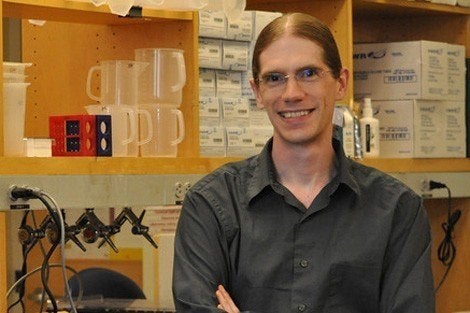[ Winter 2013 ]
As a key player in the National Institutes of Health’s Human Microbiome Project, HSPH’s Curtis Huttenhower helped identify and analyze the more than 5 million microbial genes that exist in the human body—in the stomach and the mouth, on the skin, and elsewhere.
Huttenhower, assistant professor of computational biology and bioinformatics in the Department of Biostatistics, is now taking the work a step further. Along with HSPH’s John Spengler, professor of environmental health and human habitation, and colleagues from the Broad Institute, Huttenhower will examine how city subways and other forms of mass transit alter the microorganisms that ride along with passengers. The work will be supported by a $250,000 grant from the Alfred P. Sloan Foundation.
The new research, says Huttenhower, “will answer for the first time whether and how high-traffic urban surfaces can stably alter the healthy adult microbiome,” and how best to protect riders from risks to their microbial health.
The Sloan Foundation, through its Microbiology of the Built Environment program, aims “to grow a new field of scientific inquiry that examines the microbial systems found in our homes, offices, and other indoor areas where people spend the vast majority of their time,” says Paula Olsiewski, program director at the foundation. “Curtis’s research into the way in which urban transportation systems might transmit microbes is an exciting, relevant, and largely unexplored area of study that we are happy to support.”
